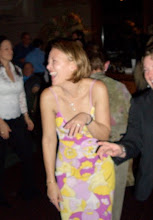I've been wanting to read John Fowles' The French Lieutenant's Woman for several years, not because I knew anything about it, but because it was in a box of books that used to belong to my Grandma D. I didn't love the book, but there were things about it that I really found intriguing, and I am very glad I finally read it.
The book, written in the late 1960s, is set in Victorian England. The noble Charles Smithson and his rich, shallow fiancee Ernestina Freeman come across Sarah Woodruff on a coastal walk. Charles becomes intrigued with the story Ernestina tells him, about the situation surrounding Sarah's jilting at the hands of a French seaman. Sarah and Charles meet accidentally, she engenders his emotional support, and they become involved. Romance, scandal, yadda yadda.
What made this book interesting to me was not so much the plot, but rather its writing. For one thing, it's written about Victorian times, in a style reminiscent of Victorian literature, but through a decidedly modern lens. Then, the narrator makes two appearances in the novel, after the first and second of the three proposed endings, to explain how the characters of a novel come to life and take off in directions one doesn't necessarily intend. While I am quite sure J.K. Rowling would not agree, it seemed an interesting perspective to me. And though when I finished the book I found the final two endings to be a bit unsatisfying, upon a night's reflection I really liked the vastly different outcomes that they proposed.
I like that the book's style has made me think, made me try to decipher the true motives of the mysterious Sarah. I'd particularly recommend The French Lieutenant's Woman for a book group discussion.
Thursday, July 3, 2008
The French Lieutenant's Woman
Labels:
literature
Subscribe to:
Post Comments (Atom)


No comments:
Post a Comment